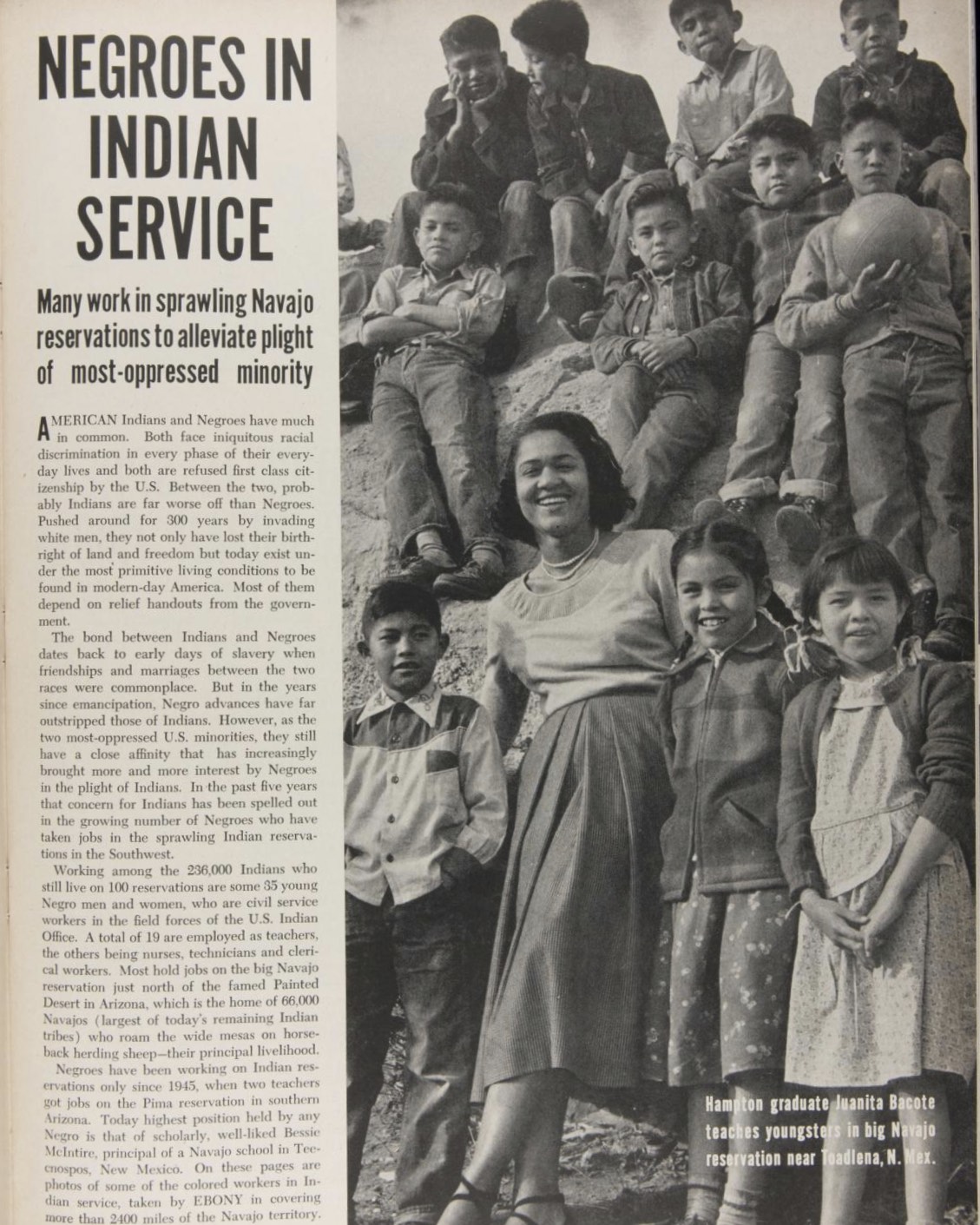November 8, 2023 Khalil Johnson
Noon Talk
An African American History of Indian Country
Khalil Anthony Johnson, Jr., Clements Fellow for the Study of Southwestern America
12 noon to 1 PM
The Texana Room, Fondren Library, 6404 Robert S. Hyer Lane, SMU
 Mrs. Addie Mae Morgan had been teaching for nearly twenty years when suddenly Oklahoma closed her segregated black school in 1948. Unemployed at the age of 47, she applied for a new teaching position with the Bureau of Indian Affairs. Relocating 1,200 miles West to teach at the Santa Rosa Community School in the Tohono O’odham Nation, Morgan joined a small but growing number of black educators in Indian Country. This talk retraces her life story to illustrate how Federal Indian Policy shaped African American history from the Dawes General Allotment Act of 1877 through the Indian Reorganization Act of 1934. Pairing Morgan with an unlikely counterpart––Nathan Margold, a Harvard-educated Jewish-American solicitor for the Department of the Interior––further illustrates how Federal Indian Law intersected with the U.S. Civil Rights Movement with surprising and unintended consequences.
Mrs. Addie Mae Morgan had been teaching for nearly twenty years when suddenly Oklahoma closed her segregated black school in 1948. Unemployed at the age of 47, she applied for a new teaching position with the Bureau of Indian Affairs. Relocating 1,200 miles West to teach at the Santa Rosa Community School in the Tohono O’odham Nation, Morgan joined a small but growing number of black educators in Indian Country. This talk retraces her life story to illustrate how Federal Indian Policy shaped African American history from the Dawes General Allotment Act of 1877 through the Indian Reorganization Act of 1934. Pairing Morgan with an unlikely counterpart––Nathan Margold, a Harvard-educated Jewish-American solicitor for the Department of the Interior––further illustrates how Federal Indian Law intersected with the U.S. Civil Rights Movement with surprising and unintended consequences.
Khalil Anthony Johnson, Jr., is the Bill and Rita Clements Fellow for the Study of Southwestern America, and an Assistant Professor of African American Studies at Wesleyan University. He holds a BA in English from the University of Georgia and a joint PhD in African American Studies/American Studies from Yale University. His research and teaching interests examine the intertwined histories of Black and Indigenous people in the United States and other Anglophone colonies, with special with emphasis on the role of education in producing both colonial structures as well as radical social movements. At the Clements Center, Khalil will be completing his book manuscript, Schooled: An Unsettling History of American Education, which is under contract with the University of North Carolina Press
Image: “Negroes in Indian Service,” Ebony, 6, June 1, 1951, 35.
Free and open to the public. No reservations necessary. Questions? Email swcenter@smu.edu.
See SMU Covid response https://www.smu.edu/Coronavirus.